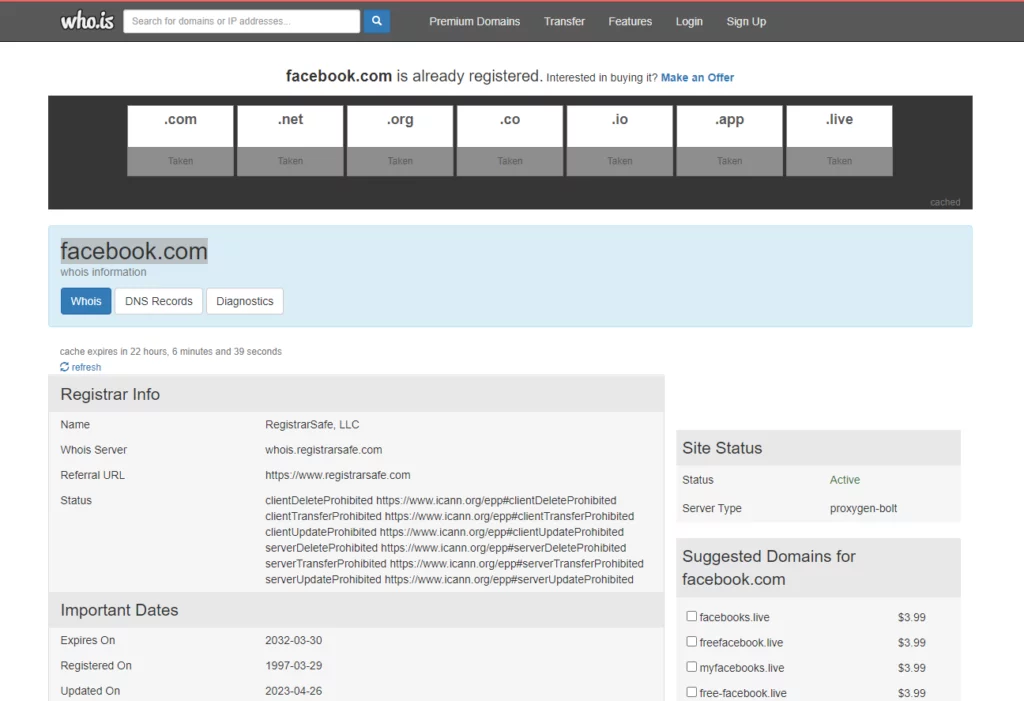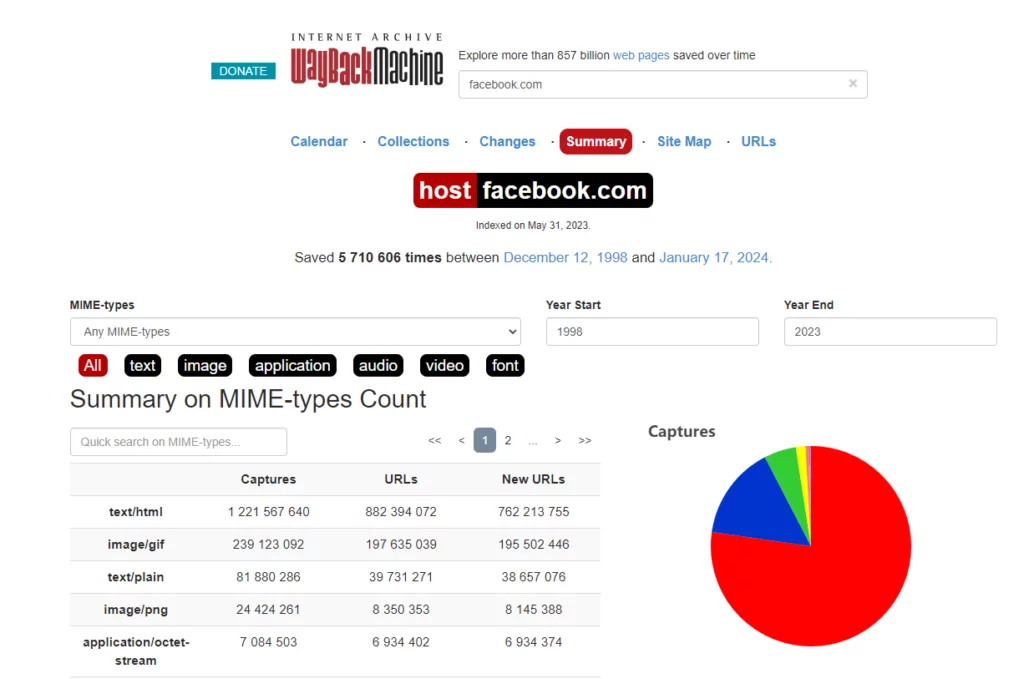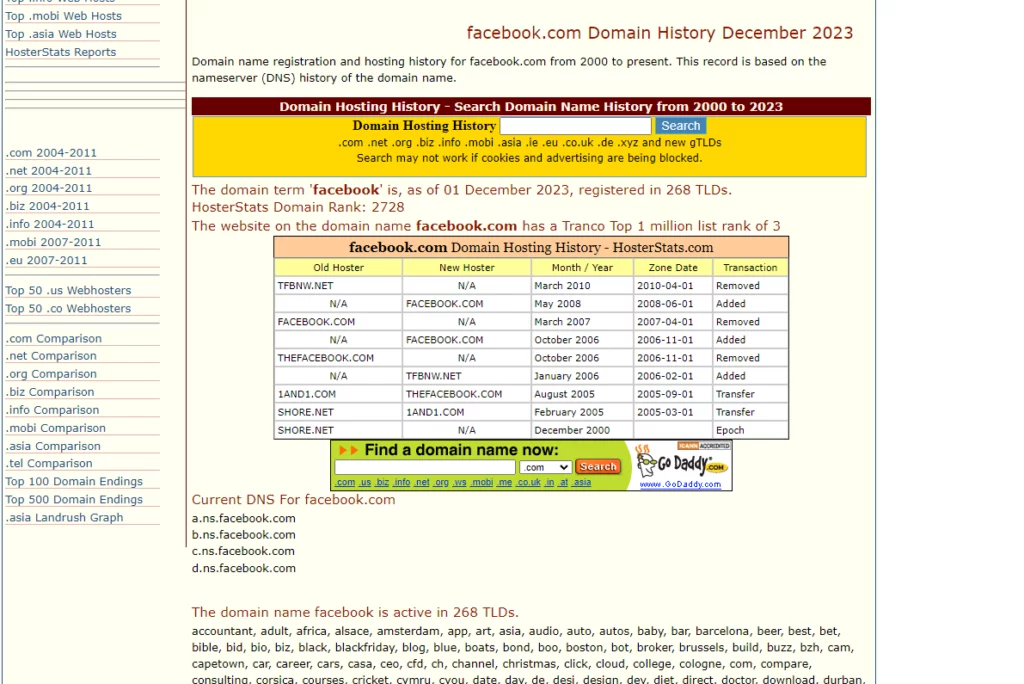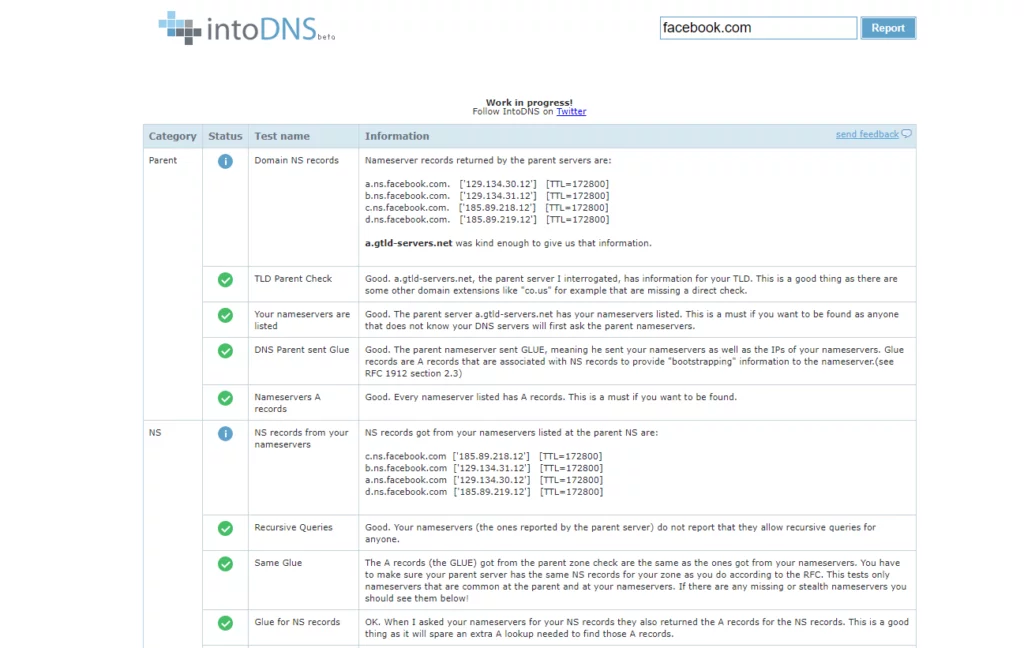Domain History: How Does It Impact Your Website’s SEO?
- by Ilona K.

Table of contents
If you have a company and you consider buying a domain, it's a perfect time to do this. However, take your time and do your research: each domain name has a history that can have a long-term impact on SEO and other marketing activities online.
For instance, you’ve created a functional website with a modern design, decided on a domain zone, bought a perfect domain name, and implemented SEO best practices, but your site is not coming up on top of search results. If you haven’t misused some black hat techniques, and your site is technically sound, then domain name history may be to blame.
Domain history refers to the history of the domain: past owners, business conducted from it, activity/inactivity, involvement in legal disputes or user complaints, as well as the past performance, including search rankings.
When buying a domain name, you are always faced with one of its types: a clean domain, a domain with a positive history and a negative one.
A decision to pick a domain of certain type depends:
- whether you really need that specific domain name or can be flexible;
- whether you need an initial authority boost or don’t mind starting from scratch;
- whether you have time to resolve negative issues;
- whether you have resources to pay premium for a name with a good history, or to pay for resolving issues around a domain with a negative history.
In any case, start your purchase with a history research - and your first stop is the WHOIS database.
How to check domain history
Domain history research starts with WHOIS data. WHOIS is a public database that stores data about domains, their owners, registration periods, and IP addresses.
If an individual or organization wants to register a domain, they must provide the following information which is stored in the WHOIS database.
- Name;
- User's residential address or company location;
- E-mail address;
- Contact phone number.
However, this system isn't a centralized database. Any changes are made not by one specific company but by independent domain registrars, who work separately. Any registrar must be accredited by ICANN (The Internet Corporation for Assigned Names and Numbers) to be able to enter data into the system. This is a nonprofit, private organization and the governing body for the Internet. ICANN is responsible for the technical operation of the Domain Name System (DNS) and the policies that define how the names and addresses of the Internet work.
ICANN, in turn, is committed to providing timely, unrestricted, and public access to information about IP addresses and domains.
With WHOIS, you can:
- Check whether a specific or similar domain name is available for registration.
- Check whether the company's address is valid.
- Contact the website administrators of a specific domain.
- Negotiate with the resource owner to buy out the rights to the domain.
- Help to identify scammers who orchestrate spam attacks or other illegal actions.
- Notify website administrators of copyright or intellectual property violations.
Checking domain history is possible by using specialized services. As well as showing the reputation of a domain, they can also find out its subject matter and even provide screenshots of the main page if the site had good historic traffic.
Who.is provides WHOIS data, important dates associated with the domain, DNS records, and more. Also, it shows in which domain zones, if any, the domain name is available for sale and at what price. The service has a function that allows you to receive notifications by mail in case of any changes to the domain you are interested in.

The Wayback Machine is a digital archive of the World Wide Web, founded by the non-profit organization Internet Archive. The service, using specialized search robots, takes a screenshot of the main page of a site on days of high traffic. This allows you to see how the main page of the site has changed throughout its history.

HosterStats, in addition to general WHOIS data, allows you to track domain statistics, provides search engine index information such as the number of pages indexed, and displays the domain's backlink, safe browsing rating, and WOT (Web of Trust) reliability rating, among other statistics.

IntoDNS allows you to find DNS records for a specific domain. The service provides detailed information about the site's configuration and its current state.

These services can help you check the history of a domain name and obtain other important information to make an informed decision about whether to purchase a particular domain.
Now let’s take a look into the impact of the history and age of a domain on website rankings.
Types of domain history
Let's talk about domain history in more detail. Domain history can fall into three overarching types:
1 A clean domain: a domain that has never been used before, and the buyer will be its first owner. Starting with a clean domain allows its history to be built up from scratch.
Having a clean domain means that you won't have to bear any consequences of a domain’s prior history. You can be confident that your domain hasn't been involved in illegal activities, penalized by search engines, or faced any other issues.
On the downside, you won't be able to leverage the positive performance signals and authority of a long-standing domain with a positive history.
Clean domains work best for those who don't want to spend time checking the history of the old domain and, if necessary, resolve the issues carried over from the past.
2 A domain with a positive history: Those domains haven’t been associated with fraudulent activities or user complaints. They have a track record of appearing at the top of search results and have never been blocked.
Not all domains with a positive history have high performance or value. However, some reasons why buyers value domains with a positive history include:
- a domain authority boost via backlinks from other good domains;
- engaged audience to grow your business, especially if your business works in the same niche;
- freedom from any filters.
Domains with a positive history are suitable for those in need of a specific domain name that has been previously registered; those looking to leverage its established topical authority to promote their business; and for those who prefer not to or can't allocate resources to promote a domain with a clean history or resolve issues on a domain with a negative history.
3 A negative history: Those domains have a poor reputation with search engines, may have been associated with fraudulent or spam activities, and may contain non-unique content. As a result, websites on these domains will struggle to rank highly in search results.
In a nutshell, buying a domain with a negative history is the worst option. The consequences you may face include:
- Problems with indexing new pages, which means users won't see them.
- Due to distrust of the domain, search engines apply filters to it, resulting in much lower rankings. These filters are algorithms that search engines use to identify websites with artificially inflated search rankings. If the search engine detects such a site, it may impose sanctions, such as demotion or removal from the search results. Search engines take these actions because their main goal is to provide users with high-quality and valuable resources.
- A website may also have many negative reviews from Internet users, so its reputation may not inspire confidence.
Domains with a negative history come across when a buyer wants to save money. They may purchase the domain quite cheap from an unverified seller, or even acquire it for free.
Buying such a domain is also justified when a person needs a specific domain name. In that case, a buyer consciously takes a risk by purchasing a domain and attempting to address its issues. They engage in legal activities using the domain, demonstrate compliance with rules and laws, and request to have any bans lifted. However, this process is difficult and time-consuming, often spanning across months and not always fruitful.
Does domain age affect rankings?
At first glance, purchasing an old domain with a positive history is better than buying a new one, as search engines are already familiar with the website and rank it well.
However, at the end of 2023, Google SEO analyst John Mueller said on Twitter that the age of the domain is not as important as many think.
The confusion likely stemmed from Google's historical search patent, which suggested that spam domains tended to have been created recently. However, although Google uses domain age to detect spam, it is not used to rank websites in search results.
So, when an old domain changes ownership, re-indexing occurs, and Google starts to re-evaluate the parameters of the newly purchased domain. New content, different assets, and a change of topic or direction make search engines perceive an old page as new. In this case, you will either have to start development from scratch or make an almost exact copy of the previous site and relaunch it without any benefit from its previous popularity.
The age of a domain can only work in your favor if the subject of the purchased domain is similar to yours. For instance, if you specialize in web design and want to benefit from an old domain with a good history, you need to pick one that has previously been used to cover web design topics or sell related services.
Domains with a positive history and good authority metrics are typically priced higher than clean domains. For some businesses, it can be a blocker, but it can also turn into a good investment since there is a possibility of selling it with a multiplier in the future. However, if you want to buy an old domain with good history just for the sake of SEO benefits - think twice, as it might not be available straight away, might not be available in a preferred zone, or might come with a premium price.
A clean domain is a viable alternative to domains with history coming with benefits of wider selection of domain names at lower prices. The .it.com domain zone is young enough to offer a large selection of free domain names as well as other advantages:
- it can be universal and suitable for any business;
- you can use “it” word as a part of your domain name, for example, do.it.com;
- it can indicate association with IT industry;
- it is still a .com extension, so it inspires confidence in users.
Moreover, it.com Domains protects the reputation of its domain zone and carefully ensures that domains in the .it.com extension are not used for illegal activities.
FAQs
1. What is domain history?
Domain history refers to the complete record of a domain name’s past activities and ownership before its current registration. This includes previous owners, WHOIS record changes, historical content (like spam, malware, or illegal material), backlink profile quality, and usage patterns if it is a parked domain. This history shapes the domain’s reputation with search engines.
2. How do I track domain history?
To track domain history, you can use specialized tools; check WHOIS history records via services like Who.is to see ownership changes; use the Wayback Machine to view archived content and analyze backlink history using HosterStats to identify toxic links.
Also, you can manually search for past penalties in Google Search Console or Bing Webmaster Tools.
3. How do I delete domain history?
You can’t delete a domain’s history. Search engines retain historical data. However, you can mitigate its negative SEO impact. Practical measures include removing old harmful content, disavowing toxic backlinks, requesting re-indexing via Google Search Console, and consistently publishing high-quality new content. Over time, diligent management can reduce historical penalties.
Need advice on buying domain names? Visit it.com Domains’ blog and follow us on social media.

Read also

Tips and Tricks
AI Appreciation Day: Top-10 Domain Names for AI Startups on it.com Domains
- 3 min read

